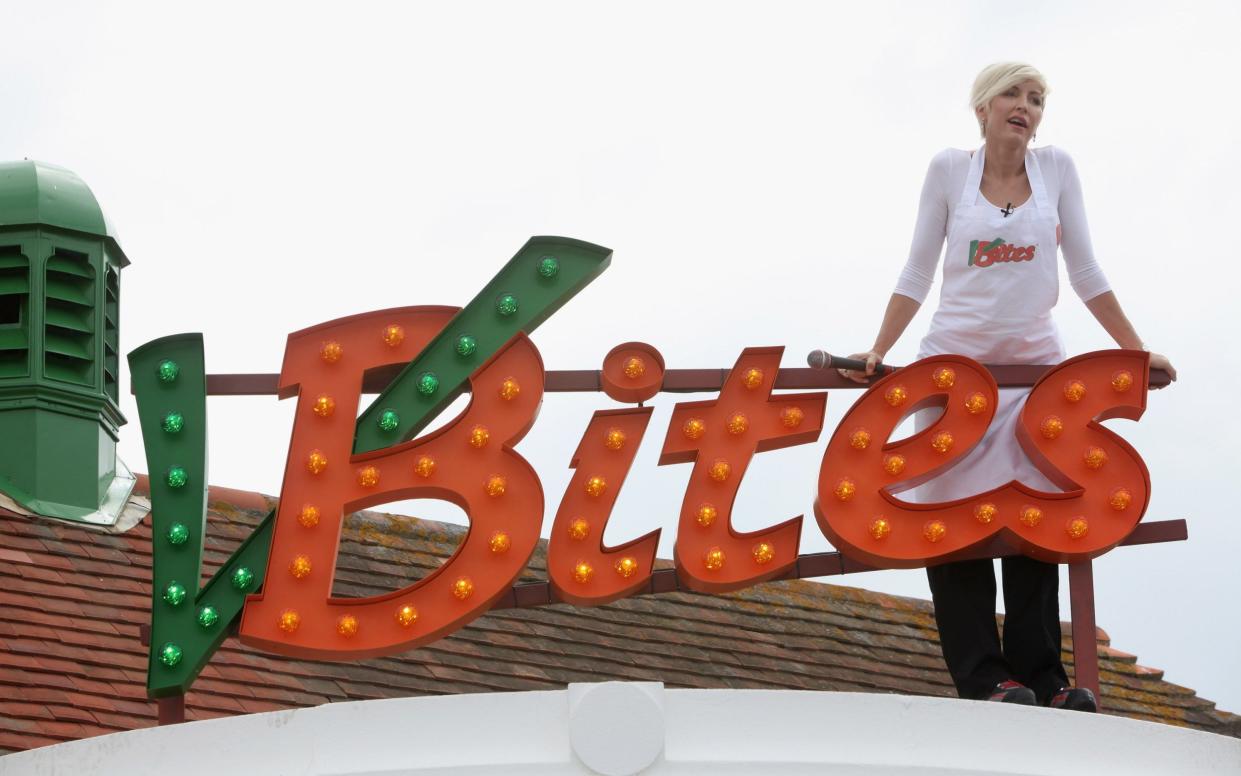Veganism is in crisis, and the fanatics can only blame themselves

Q “How do you tell if someone is a vegan?”
A: “You don’t have to, they’ll tell you.”
Maybe it’s jokes like that, highlighting society’s stereotypical view of vegans as arrogant virtue-signallers, that have led to a slump in demand for some plant-based alternatives to meat and dairy, as well as a slew of business failures among manufacturers of plant-based food – most recently Heather Mills’s company VBites, which has just announced it is going into administration.
Despite veganism being endorsed by a number of celebrities, such as the BBC’s controversial wildlife presenter Chris Packham, it doesn’t seem to have made much headway beyond those segments of the market that are either apocalyptic about climate change or fanatical about animal rights – or both. Perhaps much like Mr Packham himself.
Then there’s the argument that veganism is good for your health, which has been on an increasingly sticky wicket, deconstructed by books such as the award-winning The Great Plant Based Con by Jayne Buxton. There is also a growing backlash against ultra-processed foods, which many vegan products are.
But Ms Mills had the gall to blame “gaslighting” by the meat industry for the collapse of her vegan food empire. As a member of the meat “industry”, I take exception to that. Of course it is not really an industry at all in the UK – it is made up of family farms, in stark contrast to the public relations agencies promoting vegan diets.
Farmers have been hounded and smeared by radical vegan activists for years. I wrote in these pages back in September about Laura Corbett, the Gourmet Goat Farmer, who was targeted by vegan “activists” on social media. Her business was attacked by malicious Trip Advisor reviews.
Indeed, I would suggest that consumers have been put off by the taint of fanaticism surrounding vegan foods. Recent research has shown that omnivorous consumers are less likely to buy products if they are labelled with the V-word. While it is too early to consign veganism to the history books, I suspect when that history is written it will be seen as a fad that was rejected by the British public largely because the wild behaviour of its more extreme followers trashed the brand.
It always seemed unlikely that, after millennia evolving on an omnivorous meat-rich diet, we would then wholly abandon it. There is only one species that has ever done that: the panda. And that has not been an unqualified success.
If the vegans had wanted to actually persuade people to eat better, rather than hector them, they could have chosen a much less blunt message. But a more effective, nuanced approach, focused on stopping the harmful aspects of meat and dairy production, was not pursued and all livestock farmers were tarred with the same brush. This happened even after the positive environmental role of grass-based beef farmers was recognised by the authorities, as they began to be paid carbon credits for the net carbon they sequester.
We can’t allow vegans to continue to ruin the debate about food. We need a real food counter-revolution.
Jamie Blackett is a farmer and the author of ‘Red Rag to a Bull’ and ‘Land of Milk and Honey’ (Quiller)

